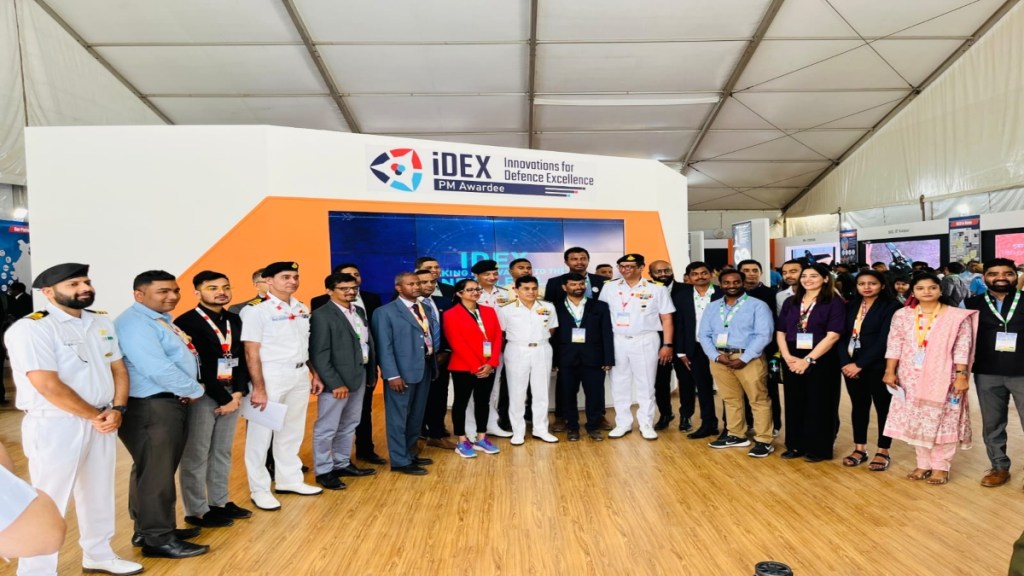By Aastha Verma
Over the past five years, there has been a surge in organizations like IDEX and TDAC, dedicated to fostering innovation in the dynamic domain of AI/ML and deep tech. This surge aligns seamlessly with the heightened emphasis on innovation across various sectors, including government, military, think tanks, and media. Initiatives such as “Make in India” have acted as catalysts for growth, challenging conventional wisdom and pushing the boundaries of the innovation ecosystem.
As a founder deeply entrenched in this cutting-edge field, the IDEX SPRINT program has played a pivotal role in shaping our journey, propelling us towards success and providing a platform to thrive. Winning the IDEX SPRINT award not only validated our innovative approach but also opened doors to collaboration and growth opportunities that significantly influenced our trajectory.
In addressing the ongoing discourse on innovation investment, it is crucial to focus not only on the amount invested but also on the strategic allocation of resources. While debates continue about increasing investment in fundamental research and development, equal attention should be paid to optimizing the utilization of existing resources, including R&D, procurement, and maintenance budgets. The synergy of these budgetary components forms the backbone of an innovation pipeline, from lab inception to real-world implementation.
The military’s recognition of the wealth of mature and cost-effective commercial technology has led to the establishment of innovative bodies like TDAC and ADB. These initiatives bridge the gap between research and development by integrating commercial technology through prototypes, enabling rigorous testing and evaluation for defence applications. As beneficiaries of such initiatives, we have flourished in this ecosystem, leveraging the expertise of military personnel to expedite our journey toward delivering niche and innovative solutions directly to stakeholders.
However, the notorious “valley of death” remains a significant challenge for start-ups in the Defence market, including ours. The struggle to secure small R&D funding, such as the IDEX Grant, while awaiting larger regular contracts poses a significant hurdle. The temporal gap between these phases often plunges start-ups into financial uncertainty, leading many to seek acquisition by larger firms. This wait between completing a challenge and receiving the AON (Acceptance of Necessity) for actual orders is lengthy, and I hope for a more expedited and certain process. We need government agencies to embrace “Invest in Failure,” granting companies the freedom to try and fail, and then try again, as R&D doesn’t follow sure-fire formulas but evolves from numerous failures into eventual success.
Recognizing the pivotal role that the budgeting and acquisition process plays in start-up survival; the Ministry of Defence must prioritize reducing the valley of death. A streamlined process that expedites contract finalization is imperative, ensuring start-ups do not languish in financial instability and can secure long-term acquisition and sustainment budgets.
Tardid’s success narrative is deeply intertwined with the invaluable engagement and prompt feedback provided by the Indian Navy. Direct stakeholder interaction and real-world problem-solving have been instrumental in aligning our innovations with effective warfighting concepts of operations (CONOPS). Rewarding top performers with substantial contracts not only communicates priorities but also aligns resources across the Ministry of Defence and the industry. Tardid was always recognised for its unique AI platform and its capability to scale to meet the niche Defence requirements. At Tardid, we ensured we focussed on developing dual use products, which helps the company solve problems for Defence and commercial sectors at the same time.
I must also commend the remarkable IDEX team, particularly Vivek Virmani and Dayanand, who have been steadfast allies to each start-up, understanding their challenges and actively seeking solutions. Whether facilitating communication between nodal agencies, principal investigators, and start-ups or transitioning processes online, the dedication of the IDEX team is evident. There is still ample room for collective growth and progress as we strive towards achieving self-reliance in India.
In conclusion, while scarcity may present challenges, it also serves as a potent motivator, historically driving some of the greatest breakthroughs. As we navigate the current geopolitical landscape and international peace dynamics, the commitment to Atmanirbhar Bharat (self-reliant India) is palpable. The IDEX SPRINT program, with its emphasis on immediate feedback, stakeholder engagement, and streamlined acquisition processes, has undeniably catalysed our growth, enabling us to thrive in the ever-evolving realm of AI/ML and deep tech.
The author is COO & Co-Founder, Tardid. And she is a winner of three IDEX SPRINT Challenges.
Disclaimer: Views expressed are personal and do not reflect the official position or policy of Financial Express Online. Reproducing this content without permission is prohibited.


